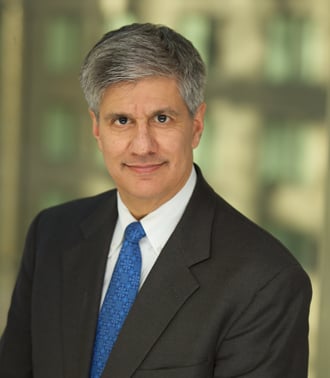Dueling Doctors—Can Clinical Judgments Be Objectively False?
Relators who were employed by healthcare providers are increasingly filing False Claims Act cases challenging the clinical judgments of doctors concerning appropriate patient treatment. These cases often allege that surgeries or hospice care paid for by Medicare or Medicaid were not medically necessary. Many defendants are surprised to discover that subjective clinical judgments have become the grist for fraud accusations.
Courts of late have not been helpful to healthcare provider defendants in these settings, at least at the pleading stage. For example, the Tenth Circuit recently reversed a district court's dismissal of a case against a hospital and doctor where the relator claimed that a type of heart surgery the doctor performed on a number of patients was not medically necessary. United States ex rel. Polukoff v. St. Mark's Hospital et al., 895 F.3d 730 (10th Cir., July 9, 2018). The district court had found that reasonable minds could differ about the underlying clinical judgment at issue and observed that the government had not specified the circumstances under which it would not pay for the surgical procedure. Id. at 741. The Tenth Circuit reversed, stating that there is no "bright-line rule that a medical judgment can never serve as the basis for an FCA claim." Id. at 742. It further supported its ruling by noting that the FCA is to be read broadly, that opinions can be the basis of FCA liability, and that many other cases have found claims for medically unnecessary treatments to be actionable under the FCA. Id.
A home healthcare provider recently met a similar fate in United States ex rel. Class v. Bayada Home Health Care, Inc., No. 16-680, 2018 WL 4566157 (E.D. Pa., Sept. 24, 2018), when the court denied the provider's motion to dismiss the case in which a relator alleged that the provider falsely claimed that its patients were homebound. The court was not persuaded by the defendant's claim that doctors had certified each patient to be homebound, stating that the question of whether those certifications refuted the allegation of falsity would be more appropriate for summary judgment.
Other courts seem to think so as well. Two days after Class, another court within the Third Circuit granted summary judgment as to claims against a hospice care provider alleging that the provider had submitted false certificates of patient eligibility. Druding v. Care Alternatives, Inc., No. 08-2126, 2018 WL 4629514 (D.N.J. Sept. 26, 2018). The parties had completed discovery and submitted expert reports regarding whether the physician certificates of patient eligibility for hospice care were false. In this battle of the experts, the court bounced the action because a "mere difference of opinion between physicians" cannot demonstrate objective falsity. It did not help relators' case that their own expert physician stated in his report that determining eligibility for hospice care is a "difficult task that depends on the judgment and experience of clinicians." Id. at *9. Of course, that proposition is fairly self-evident.
Notably, the court in Druding relied heavily on two other district court cases, both of which similarly found that differences in clinical judgments cannot sustain an FCA claim. Both were decided past the dismissal stage. In one, United States v. Aseracare, Inc., 153 F. Supp. 3d 1372 (N.D. Ala. 2016), the fact that the case boiled down to a difference in clinical judgments did not become apparent to the district court until after a jury trial. The other case, United States ex rel. Wall v. Vista Hospice Care, Inc., No. 07-cv-604, 2016 WL 3449833 (N.D. Tex. June 20, 2016), was dismissed on summary judgment when the court recognized that relator's expert opinion reflected only "disagreement with a certifying physician's prediction of life expectancy," which was "not enough to show falsity." Id. at *17. In these cases, courts allowed the litigation to play out a bit before dismissing when the record convinced them that relators were merely second-guessing the subjective clinical decisions of physicians. Perhaps stricter enforcement of Rule 9(b) pleading standards in such cases can avoid the costs of prolonged litigation where the issue boils down to dueling doctor opinions.
© Arnold & Porter Kaye Scholer LLP 2018 All Rights Reserved. This blog post is intended to be a general summary of the law and does not constitute legal advice. You should consult with counsel to determine applicable legal requirements in a specific fact situation.

